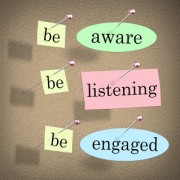Relationship Therapy and Recession
“Couples who are worst affected by a recession are eight times as likely to suffer relationship breakdown”
states a UK survey “Relationships, Recession and Recovery”.
Relationship Therapists say Australia is the same.
Data from over 40,000 respondents was grouped according to the experiences of recession: job loss, optimism for the future, perception of current and future financial situation, working overtime, satisfaction with employment and being behind with bills. Then they assessed how couple relationships fared in each group.
The findings highlighted that couples who suffered negative impacts due to the recession demonstrated greater deterioration in their relationship stability. Also couples who remained in relationships had relatively poor quality relationships.
People can feel they have very little control over what will happen to them in financially difficult times; less money, job insecurity, fear of home repossession, having to cut back and having to make some tough decisions.
Insecurity causes stress – often when stressed or feeling frightened we dump this stress on those who are nearest and dearest to us. People feel stuck and frustrated and this can lead to not sleeping, drinking too much and turning away from family and friends.
Therapists believe there is there worse to come?
The concern is that the full extent of relationship tensions may be yet to materialise. The high costs of separation may preclude some couples seeking separation or divorce until their financial situation improves.
Possible warning signs.
Dealing with changes together is paramount to any successful relationship AND it is normal to feel confused and threatened especially when every change appears negative. Questions like, is our relationship strong enough, will we stay together if one of us becomes unemployed? As a couple are we willing to take on new roles?
Underneath the practical money worries are feelings about control, power and independence. Many couples will have been used to keeping at least some of their money separate. But now one of you might be at risk of losing your job. Your partner will either say something like “Well I can’t support you. You need to get some money or else” or “Well actually, I’ve got enough money. I’ll look after you for a while”. Regardless of gender, some people feel uncomfortable with relying financially on the other.
Unemployment and redundancy doesn’t just affect couples through loss of income; but for the unemployed partner there can be a loss of confidence, a feeling of worthlessness, loneliness and depression.
Research shows men are more negatively affected by losing their job than women. This may be because men often earn more so the loss of income may be more severe; but they may also get a greater sense of worth through their job and therefore feel more stigma if they are not able to provide for their family. Frustration can, at worst lead to domestic violence.
Potential impact on children
Parents often incorrectly think that their children aren’t aware of what is going on however, when relationships are strained,children can pick up on the atmosphere even if they don’t fully understand the issues that are causing it.
When parents are particularly stressed they may become preoccupied and harsher or less involved with their children. Sometimes one parent’s style will have changed and the other parent becomes more protective of the children. This often starts rows about parenting that can lead the children to think they are in some way to blame. It is these arguments that are mostly like to upset children.
As parents we always want to give our children what they want and children know this and often use it to pester us! But in more strained times children’s nagging can become a more difficult issue. Couples may struggle with their feelings around this – one of you may feel guilty that you are not able to afford things children want or you may disagree about what the children ‘need’. So arguments about when limited cash should be spent become a regular feature of day to day life. Many couples are prepared to sacrifice certain things for themselves but find it much harder when it comes to saying no to children.
Getting Help with Relationship Therapy
If you are aware of some of the warning signs don’t be afraid to seek help with your relationship. Sometimes people worry that going to a counsellor means they are in big trouble or that it’s ‘all over red rover’. In fact, if you go early enough, the opposite is frequently true!
If you find that conflict is difficult to resolve on your own, go and get some help while the issue is still small. Many, many couples enjoy an improvement in their relationships with the boost of a little outside help.
Relationship counselling doesn’t have to be disaster management and can in fact be more useful when it’s used for foundation strengthening. A relationship counsellor can assist you in ways to be more flexible and self-reflective, be better able to look at things from your partners’ point of view and to reconsider your own actions and behaviour, which can lead to the subtle shifts in attitude that lead to resolving problems.


![content[1] content[1]](http://enhancingdesire.com.au/wp-content/uploads/2015/07/content1-180x180.jpg)








